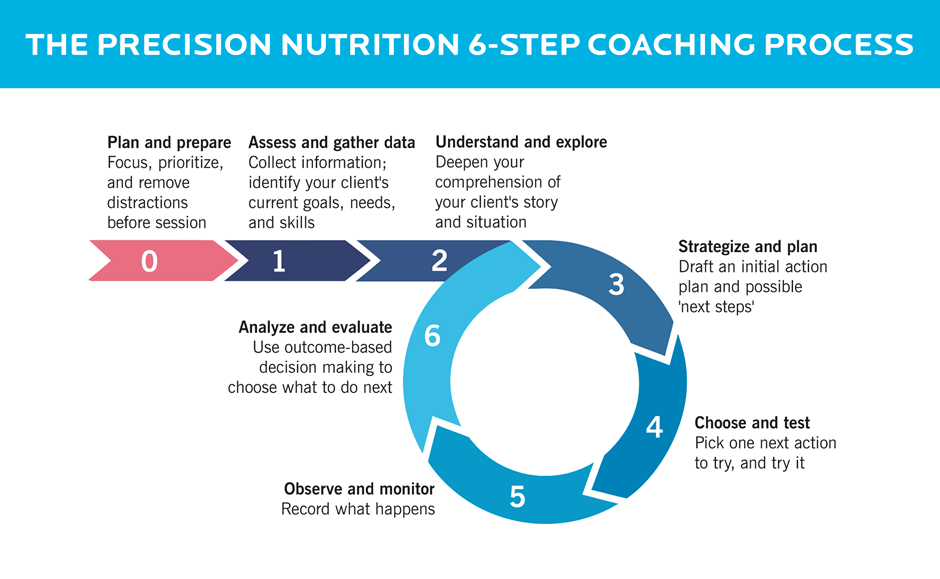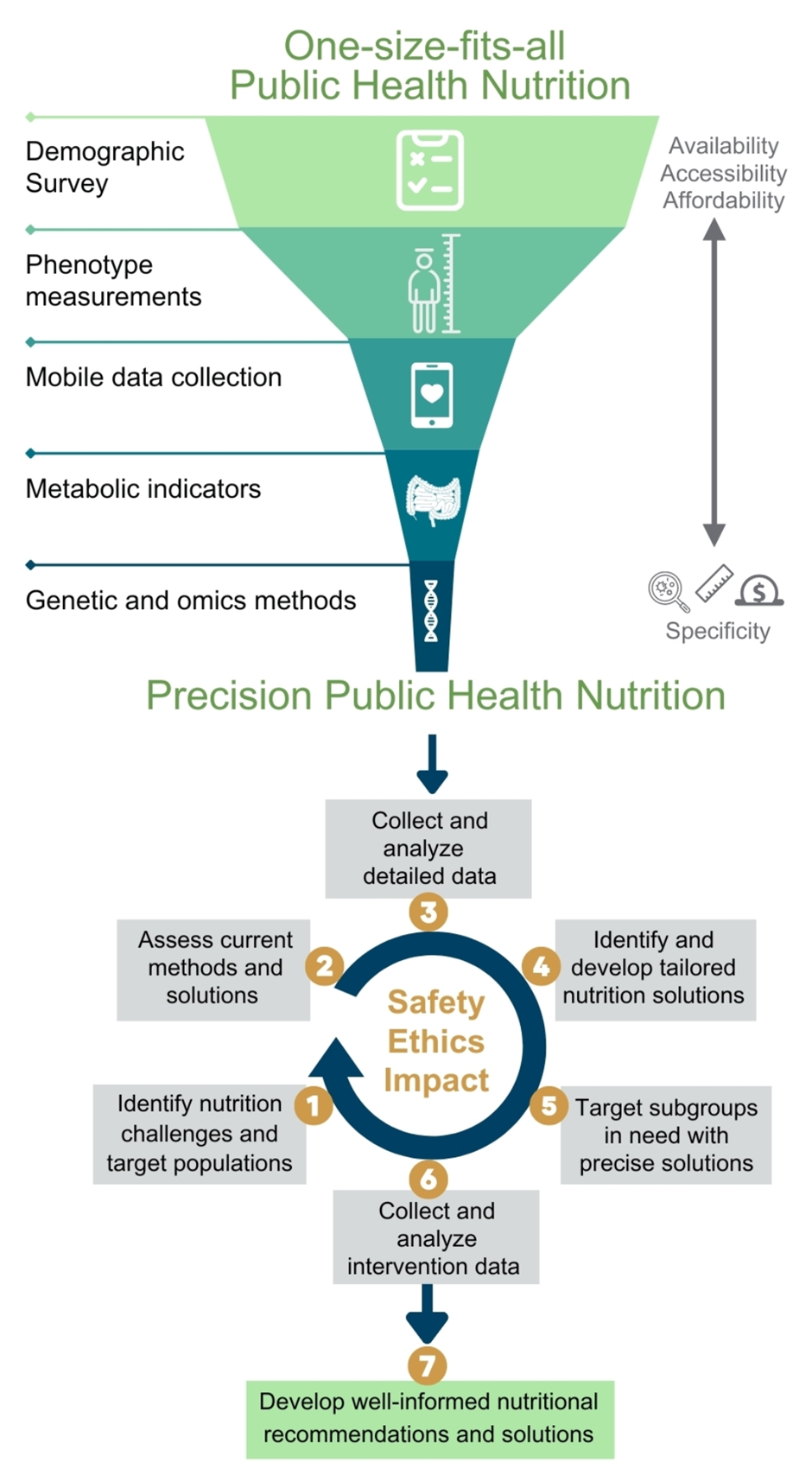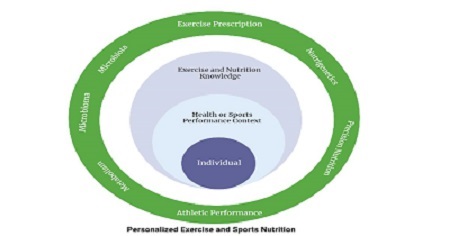Context:
The recent disqualification of Indian wrestler Vinesh Phogat from the women’s 50 kg wrestling final at the Paris Olympics 2024, due to being 100 grams over the permissible weight limit, highlights a significant issue within India's sports support system. This incident underscores the crucial role of support staff, including sports nutritionists, doctors, and team management, and calls attention to the need for integrating precision nutrition into athlete training.
Understanding Precision Nutrition
- What is Precision Nutrition?
- The Science Behind Precision Nutrition : Precision nutrition utilises a multi-omics approach, including genomics, proteomics, metabolomics, microbiomes, and epigenetics. It integrates bioinformatics and machine learning to provide evidence-based, individualised nutrition recommendations. By analyzing an athlete’s metabolism, microbiome, and physiological responses to food, precision nutrition aims to optimise performance and recovery. For instance, a plant-based diet and regular exercise can positively influence gut microflora, potentially enhancing athletic performance and post-exercise recovery.
- Challenges with Traditional Methods : Traditional methods of collecting dietary and physical activity data, such as questionnaires and interviews, often suffer from issues like self-reporting bias and memory lapses. These methods can be supplemented with continuous monitoring tools, such as continuous glucose monitors (CGMs), which offer real-time insights into an athlete’s physiological responses and help tailor more accurate nutrition strategies.
The Importance of Sports Nutrition
- Sports Nutrition in Athlete's Performance : Sports nutrition plays a crucial role in an athlete's performance and overall health by ensuring proper hydration, fueling, and nourishment. Addressing these three factors provides a significant advantage, helping athletes enhance their strength, muscle development, endurance, and recovery.
- Benefits of Sports Nutrition : Proper nutrition improves an athlete's ability to gain strength, muscle, and endurance, recover faster between workouts and competitions, heal more quickly from injuries, and perform at their best when it matters most.
The Role of Continuous Glucose Monitoring (CGM)
- How CGM Works : Continuous glucose monitors track blood glucose levels minute by minute through a sensor implanted under the skin. This technology, commonly used by people with diabetes, can also be valuable for athletes. Under the guidance of a trained nutritionist, CGMs can help monitor glucose responses to food, allowing for more precise dietary recommendations aimed at enhancing muscle building, energy levels, and overall performance.
- Examples of CGM in Use : Athletes like retired Australian swimmer Chelsea Hodges and Kenyan long-distance runner Eliud Kipchoge have reported benefits from using CGMs to manage their nutritional needs. However, the use of CGMs during competitions is restricted by some sports governing bodies. Nonetheless, their application during training can still provide valuable insights into how different foods impact athletic performance.

The Need for Personalized Nutrition in Weight-Based Sports
- Challenges in Weight-Based Sports : In weight-based sports such as wrestling, boxing, and martial arts, athletes often face the challenge of making weight within strict limits. Extreme measures like starvation and dehydration are frequently employed, which can adversely affect performance and health. The case of Vinesh Phogat, who struggled to shed weight before the weigh-in, illustrates the need for a more sustainable approach to weight management.
- The Role of Sports Nutritionists : Sports nutritionists trained in precision nutrition can play a crucial role in monitoring and optimising an athlete’s dietary intake and body composition. These professionals need to be involved in long-term planning and familiar with the specific rules and requirements of the sports they support.
Implementing Precision Nutrition in Sports
- Integration and Continuous Monitoring : Integrating precision nutrition involves creating individualised dietary plans and continuously adjusting them based on an athlete’s evolving needs. This approach aims to reduce the reliance on extreme weight-cutting practices, promoting healthier and more sustainable methods of weight management.
- Individualised Assessment : Effective sports nutrition begins with individualised assessment, which is essential for creating a tailored approach. This involves a detailed dietary analysis to track macronutrients, micronutrients, and food sensitivities. Genetic testing helps identify predispositions to certain nutrients or performance traits, while metabolic assessment provides insights into how the body utilizes energy. Gut microbiome analysis assesses the role of the gut in digestion and immune function, and performance testing evaluates strength, endurance, power, and recovery.
- Nutrient Optimization : Based on these assessments, a customized nutrition plan is developed. This plan focuses on balancing macronutrients—proteins, carbohydrates, and fats—to align with the athlete's goals. It ensures micronutrient sufficiency by optimizing the intake of essential vitamins and minerals and includes a personalized hydration strategy. Additionally, targeted supplements are recommended if necessary, to support the athlete’s specific needs and enhance overall performance.
- Behavioral Change and Education : Building sustainable eating habits is key for long-term success, focusing on lasting dietary practices. Education empowers athletes with essential nutrition knowledge, while ongoing support and accountability help them maintain and adjust their habits effectively.

Conclusion
The disqualification of Vinesh Phogat highlights a critical gap in the Indian sports support system. Adopting precision nutrition can prevent such setbacks and enhance athlete performance by leveraging technology and expert nutritional advice. By prioritising precision nutrition, India can advance its sports training systems, ensuring athletes reach their full potential while maintaining their health and well-being. Precision nutrition (PN) is a data-driven method that customises dietary recommendations based on individual health needs. For PN to have a meaningful impact on both personal and public health, it must be fully integrated into the healthcare system. Additionally, healthcare professionals must be trained to deliver PN services, promoting widespread and equitable adoption. Collaboration among nutrition and health stakeholders is crucial to expanding scientific evidence on PN's effectiveness and overcoming barriers to access and coverage.
|
Probable Questions for UPSC Mains
|
Source: The Hindu







